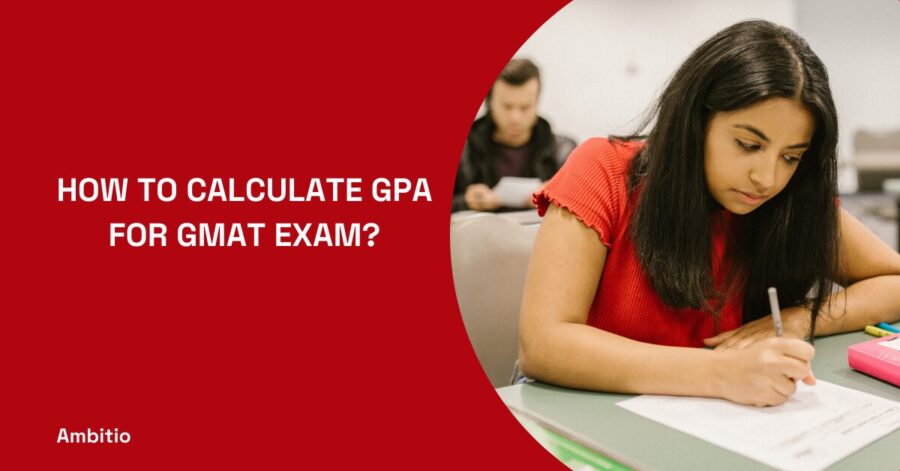3 September 2024
8 minutes read
GMAT Preparation Time – How long does it take to prepare for the GMAT?

Key Takeaways
- A structured and consistent study schedule, tailored to your strengths and weaknesses, is essential for effective GMAT preparation.
- Invest in high-quality GMAT prep materials and consider professional coaching to ensure comprehensive coverage and guidance.
- Incorporate full-length practice tests to build stamina, manage time, and track progress.
- Efficiently manage study time around work or other commitments, and adapt your study plan based on ongoing assessments.
Preparing for the GMAT can be a daunting task, especially for those juggling full-time jobs or other significant commitments. However, with the right approach and resources, you can effectively manage your preparation time and achieve your target GMAT score. This blog will explore how long it takes to prepare for the GMAT, the factors that influence this duration, and how you can optimize your study plan.
How much time is required to prepare for GMAT?
Here’s a detailed tabular column outlining the preparation time required for the latest GMAT format .
| GMAT Section | Preparation Time (Weeks) | Description |
|---|---|---|
| Quantitative Reasoning (Quant) | 4-6 | Focus on reviewing fundamental concepts, practicing problem-solving techniques, and timed practice sessions. |
| Verbal Reasoning | 4-5 | Review grammar rules, reading comprehension strategies, and practice verbal questions to improve accuracy and speed. |
| Critical Reasoning | 3-4 | Practice identifying argument structures, assumptions, and logical flaws, and solve a variety of critical reasoning questions. |
| Integrated Reasoning | 2-3 | Develop skills in interpreting data from multiple sources, practicing with graphical and tabular data. |
| Analytical Writing Assessment (AWA) | 2-3 | Practice writing essays, focusing on clear argument structure, coherence, and effective use of examples. |
| Full-Length Practice Tests | 2-3 | Take full-length, timed GMAT practice tests to master the GMAT time and identify areas needing further review. |
Medium Time Taken by Candidates
Most candidates take approximately 10-12 weeks on average to prepare successfully for the GMAT exam, ensuring comprehensive coverage of all sections of the GMAT Focus edition, including quant, verbal, critical reasoning, integrated reasoning, and analytical writing. This medium preparation time allows candidates to thoroughly review each section, practice extensively, and build test-taking stamina and confidence. Thus , cracking the GMAT.
Factors Affecting the GMAT Preparation Time

The time taken to prepare for the GMAT Focus edition varies for each individual. Here are the factors that determines the GMAT preparation time .
Initial Diagnostic Test
Taking an initial diagnostic test helps identify your strengths and weaknesses across different sections of the GMAT. This assessment is crucial to determine the time required for preparation. It provides a baseline and helps tailor your study plan to focus on areas needing improvement.
Target Score
Your target score plays a significant role in determining your preparation time. Higher target scores typically require more intensive study sessions and a longer preparation period to master the necessary skills and concepts.
Strengths and Weaknesses
Understanding your strengths and weaknesses is essential. If you are strong in quant but weak in critical reasoning, you will need to allocate more time to the areas where you are less proficient. This ensures a balanced preparation and prevents you from wasting your time on sections you are already confident in. Know that GMAT provides lifetime limits to the students taking it . Hence , plan your preparation strategy accordingly .
Study Schedule and Consistency
Consistent study sessions are more effective than irregular, intense study marathons. A well-structured study schedule, spread over a few months to prepare, allows for gradual improvement and better retention of GMAT material.
Mock Tests and Practice
Regular mock tests are vital to gauge your progress and adjust your study plan accordingly. These tests simulate the actual GMAT exam environment, helping you build stamina and manage time effectively during the test.
Quality of GMAT Material
The quality and comprehensiveness of the GMAT material you use can impact your preparation time. High-quality GMAT prep books & resources provide clear explanations and varied practice questions, making your study sessions more productive.
Flexibility and Adaptability
Your ability to adapt your study plan based on ongoing assessments and practice test results is crucial. The time required to take the GMAT depends on how effectively you can adjust your strategies and focus on areas that need more attention.
How should you structure your GMAT study schedule?
Effective GMAT prep requires a structured plan that balances content review, practice, and mock tests. Time management is crucial for thorough GMAT preparation, showing you how to score a 750 in GMAT and gain admission to your desired business school.
GMAT 30 days study schedule for Re-takers
Here is a detailed 30 day study plan for GMAT retakers.
| Day Range | Activity | Hours per Day | Description |
|---|---|---|---|
| Days 1-5 | Diagnostic Test & Review | 2-3 | Take a diagnostic test to identify strengths and weaknesses and review the results to plan your study schedule. |
| Days 6-10 | Quant & Verbal Review | 3-4 | Intensive review of quant and verbal sections, focusing on weak areas. |
| Days 11-15 | Critical Reasoning & Integrated Reasoning | 3-4 | Understand the syllabus of GMAT Integrated reasoning & Critical Reasoning and practice problems. |
| Days 16-20 | Full-Length Practice Tests | 4-5 | Take two full-length mock tests, analyse results, and adjust study plan accordingly. |
| Days 21-25 | Targeted Practice | 3-4 | Target weak areas with focused practice sessions. |
| Days 26-30 | Final Review & Relaxation | 2-3 | Final review of key concepts and light practice, ensure relaxation before the test day. |
GMAT 60 Days Study Schedule for Re-takers & First-time Takers
Follow the below study schedule to beat the GMAT within 60 days.
| Week Range | Activity | Hours per Day | Description |
|---|---|---|---|
| Weeks 1-2 | Diagnostic Test & Foundation Review | 2-3 | Take a diagnostic test and review fundamental concepts in quant and verbal sections. |
| Weeks 3-4 | Quant & Verbal Intensive Practice | 2-3 | Intensive practice of verbal and quant GMAT questions. |
| Weeks 5-6 | Critical Reasoning & Integrated Reasoning | 2-3 | Focus on critical reasoning and integrated reasoning problems. |
| Weeks 7-8 | Full-Length Practice Tests | 3-4 | Take two full-length mock tests, analyse results, and adjust study plan accordingly. |
| Weeks 9-10 | Targeted Practice | 2-3 | Target weak areas with focused practice sessions. |
| Weeks 11-12 | Final Review & Mock Tests | 2-3 | Final review and take additional mock tests for confidence and timing. |
GMAT 90 Days Study Schedule for Re-takers & First-time Takers
Here is a 90 GMAT day study plan designed for both re-takers and first-time takers .
| Week Range | Activity | Hours per Day | Description |
|---|---|---|---|
| Weeks 1-2 | Diagnostic Test & Basic Review | 2-3 | Take a diagnostic test and review basic concepts in quant, verbal, and integrated reasoning. |
| Weeks 3-4 | Quantitative Review | 2-3 | Intensive review of GMAT quantitative section topics, focusing on problem-solving and data sufficiency. |
| Weeks 5-6 | Verbal Review | 2-3 | Review verbal section, focusing on reading comprehension, sentence correction, and critical reasoning. |
| Weeks 7-8 | Critical Reasoning & Integrated Reasoning | 2-3 | Focus on critical reasoning and integrated reasoning problems. |
| Weeks 9-10 | Full-Length Practice Tests | 3-4 | Take two full-length mock tests, analyse results, and adjust study plan accordingly. |
| Weeks 11-12 | Targeted Practice | 2-3 | Target weak areas with focused practice sessions. |
| Weeks 13-14 | Advanced Practice & Review | 2-3 | Advanced practice questions and review of complex problems in all sections. |
| Weeks 15-16 | Final Review & Mock Tests | 2-3 | Final review and take additional mock tests for confidence and timing. |
| Weeks 17-18 | Relaxation & Light Practice | 1-2 | Light practice and relaxation to ensure readiness for the GMAT test day. |
Incorporating consistent hours per day in your GMAT prep plan, along with strategic time management, will optimize your test prep and ensure you are well-prepared for the GMAT exam within your chosen GMAT preparation duration. By following a preparation plan sincerely , you can achieve the GMAT percentile required for your dream university.
How to create a GMAT study plan and measure progress ?
By following the below steps, you can effectively manage the time required for GMAT preparation and achieve your target score within an appropriate time frame.
- Set a Target GMAT Score – Know the GMAT eligibility criteria. Begin by determining your target GMAT score. Use the official guide to understand the test format and question types.
- Initial Assessment – Take a diagnostic test to identify strengths and weaknesses. This will help estimate the time required for GMAT preparation.
- Structured Schedule – Create a study schedule, allocating appropriate time for each section: quant, verbal, and critical reasoning. Plan for 2-3 months, adjusting based on your needs. To reduce the time, focus on weak areas.
- Daily Study Routine – Dedicate consistent hours of study time each day, aiming for 2-3 hours. Avoid long breaks to maintain momentum and ensure regular practice.
Measuring Progress
- Practice Tests – Take regular full-length practice tests to measure progress. Compare scores to your target GMAT score and identify any persistent problem areas.
- Adjust Study Plan – Based on practice test results, adjust your study plan to focus more on weaker sections. This will help you improve steadily and efficiently.
What should you avoid in a GMAT Preparation Time plan?

Firstly , know what is a good GMAT score . Plan your preparation based on your strength and weakness. By avoiding the below-mentioned common pitfalls, you can ensure a more effective and comprehensive GMAT study plan, increasing your chances of achieving your desired total GMAT score.
Inconsistent Study Schedule
Avoid short study bursts followed by long breaks. Consistency is key. Know the time needed for the GMAT and stick to a regular study schedule.
Ignoring Weak Areas
Don’t focus only on your strengths. The GMAT is a highly comprehensive test, and addressing your weak areas is crucial for a balanced total GMAT score.
Overlooking Practice Tests
Skipping full-length practice tests is a mistake. These simulate the real GMAT experience, helping you manage time and build stamina. Understand the benefits of taking GMAT and include regular practice tests in your plan to track progress .
Using Poor Study Materials
Relying on low-quality resources can hinder your preparation. Use the official guide and reputable GMAT prep materials to ensure you are studying relevant and high-quality content.
Cramming
Avoid cramming as it is ineffective for the GMAT, which requires deep understanding and application of concepts. Spread your study sessions over an appropriate period to retain information better.
What is a good GMAT score ?
A good GMAT score typically falls between 700-740, which aligns with the average scores for top business schools. Here’s a table showing the average GMAT scores required to get into the top 10 business schools around the world:
| Rank | Business School | Average GMAT Score |
|---|---|---|
| 1 | Stanford Graduate School of Business | 737 |
| 2 | Harvard Business School | 730 |
| 3 | Wharton School, University of Pennsylvania | 733 |
| 4 | MIT Sloan School of Management | 727 |
| 5 | Columbia Business School | 727 |
| 6 | INSEAD | 710 |
| 7 | London Business School | 701 |
| 8 | University of Chicago Booth School of Business | 730 |
| 9 | North-western University Kellogg School of Management | 727 |
| 10 | UC Berkeley Haas School of Business | 725 |
How long does it take to prepare for the GMAT with a full-time job?
While working full-time, you need to prepare diligently and use your time wisely. With disciplined planning and the right resources, you can efficiently manage your GMAT preparation and achieve your target score.
Total Time Required
For a working professional, the total time needed to prepare for the GMAT typically ranges from 3 to 6 months. This timeframe allows for a thorough review of all test sections while balancing the demands of working full-time.
Time Management
Managing your work schedule and study time wisely is crucial. Dedicate 2-3 hours per day to study sessions, focusing on early mornings, lunch breaks, or evenings. Consistency is key to making steady progress without overwhelming yourself. Follow GMAT beginners guide to have a strong hold of the exam.
Study Resources
Utilize the official GMAT materials as your primary resources. These provide a comprehensive overview of the test format and question types. Additionally, consider enrolling in the best GMAT coaching available, whether in-person or online GMAT courses, to receive structured guidance and support.
Study Schedule
Plan your study schedule around your work commitments. Prioritize weekends for longer study sessions and use any available downtime during the week effectively. Avoid long breaks to ensure continuous learning and retention of information.
Joining GMAT study groups or finding a study partner can provide motivation and accountability. Regular practice tests will help track your progress and identify areas needing improvement. Listen to e-GMAT success stories to design your study strategy.
Conclusion
By setting a realistic schedule, using high-quality resources, and regularly assessing your progress, you can efficiently manage your preparation and achieve your desired GMAT score. Remember, consistency and effective time management are key to a successful GMAT prep plan.
Empower your GMAT journey with Ambitio’s expert strategies and resources. Our platform is designed to guide you to exceptional results, offering a blend of content mastery, practice opportunities, and analytical techniques that elevate your preparation and performance.
FAQs
What are common pitfalls to avoid during GMAT preparation?
Avoid inconsistent study schedules, neglecting weak areas, skipping practice tests, using poor-quality study materials, and cramming. Regular, focused study sessions with high-quality resources are key.
How do I create an effective GMAT study plan?
Start with a diagnostic test to identify your baseline. Set a target score, allocate time for each GMAT section based on your weaknesses, incorporate regular practice tests, and adjust your plan based on progress.
How important are practice tests in GMAT preparation?
Practice tests are crucial. They help you simulate the test environment, manage time, build endurance, and identify areas needing improvement. Aim to take at least 4-5 full-length tests during your preparation.
Is it beneficial to take a GMAT prep course?
Yes, a prep course can provide structured learning, expert guidance, and additional resources. This is especially helpful if you need a disciplined study schedule or have specific weaknesses.
How many hours per day should I study for the GMAT?
It varies, but a consistent 2-3 hours per day is generally recommended. This should include a mix of learning concepts, practicing problems, and taking full-length practice tests.
Can I prepare for the GMAT in one month?
Yes, it is possible but challenging. A one-month prep requires intensive study, often 4-5 hours daily, focusing on key areas of improvement and consistent practice with high-quality materials.

You can study at top universities worldwide!
Get expert tips and tricks to get into top universities with a free expert session.
Book Your Free 30-Minute Session Now! Book a call now




























